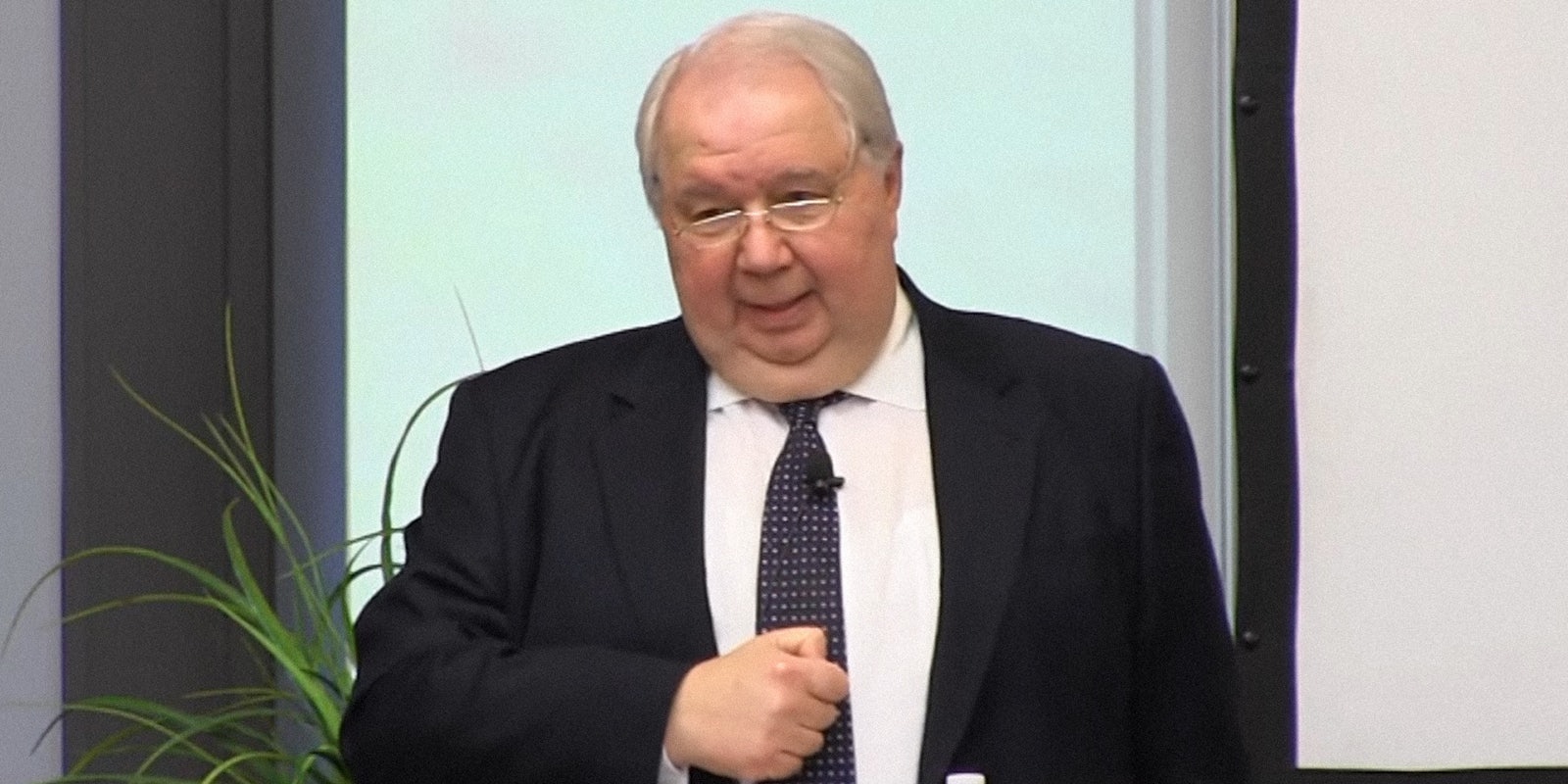Sergey Kislyak, Russia’s ambassador to the United States, has been a man on the move since he began his post in September 2008, only a month before Barack Obama won the presidential election. Today, however, he’s at the center of one of the biggest unfolding scandals in America.
The 66-year old Russian envoy has recently raised the suspicions of Democrats and some Republicans in Congress in light of the ongoing investigations by U.S. intelligence into Russia’s hacking of the 2016 presidential election.
Kislyak is back in the news this week following reports that Attorney General Jeff Sessions denied in sworn testimony of having any contact with Russian officials during his confirmation hearings before the Senate. In fact, Sessions met with Kislyak while the former was still serving as a U.S. senator in 2016. As a result of the discrepancy in Sessions’ statements, lawmakers, mostly Democrats, have called for the attorney general to resign or recuse himself from ongoing FBI investigations into Russia. Some Democrats have called for a criminal investigation into Sessions.
The Sessions debacle comes just weeks after President Donald Trump’s former national security adviser, Michael Flynn, was forced to resign after speaking to Kislyak over the phone about U.S. sanctions on Russia prior to Trump’s inauguration.
So, who exactly who is Sergey Kislyak?
According to Kislyak’s bio, he has spent nearly 40 years representing Russia’s interests as a diplomat in both Washington, Brussels, and the United Nations. The Russian envoy has been critical of the U.S. response to Russia’s intervention in Ukraine. Kislyak, who was born in the primarily pro-Russian region of Ukraine, has dismissed the political upheaval there as the work of extremists and has called out the West for its characterization of the conflicts in the region.
Said Kislyak in a 2014 interview with Voice of Russia:
“We can see very well how strong the urge in the West is to dictate or suggest to Ukrainians what is good or not good for them. At the same time, I haven’t come across any unambiguous and clear-cut size-up of the actions of extremists who try to set policemen on fire under democratic revolution slogans. I wouldn’t like to see anything like that in the streets of Western cities—in Europe or the US. I wonder how the police of those countries would respond in that case. What I saw in Kiev was an extreme form of political extremism.”
A 2014 Washington Post profile of Kislyak refers to him as “an old-school diplomat, preferring one-on-one lunches and intimate dinner parties” to public appearances. But Kislyak has travelled the nation extensively and given talks about the state of U.S.–Russia relations in places far outside New York and Washington.
For example, Kislyak in 2016 spoke on a couple of occasions at Belmont University in Tennessee, where he was hosted by the Tennessee World Affairs Council. Kislyak voiced frustration with American–Russian relations and what he felt were American misperceptions of Russia.
“The relations between the societies are minimal,” he said. “I believe, personally, that the benefits of economic interaction are not only that people are getting richer and making money to create jobs. It’s also creating understanding in the spirit of what they are, and I’ll always underlie what is important—understanding what they are not.”
U.S. and European Union sanctions on Russia, which were first put in place in 2014, along with declining oil prices all over the world, had caused considerable damage to Russia’s economy by 2016. Experts are in debate over whether sanctions caused more damage to Russia than declining oil prices.
Kislyak graduated from the USSR Academy of Foreign Trade in 1977, during a time when the Soviet Union’s economy was stagnating and political corruption under Communist rule was on the rise. After the death of Soviet leader Leonid Breshnev in 1982, Kislyak worked in New York as the second secretary of the Permanent Mission of the USSR to the United Nations. Only six months before his death, Breshnev addressed the U.N. in New York City in support of nuclear disarmament.
Kislyak was a key player in arms-control issues during the 80s, as the Reagan administration and the Soviet Union under Mikhael Gorbachev strove towards a nuclear-free future. Kislyak was a diplomat at the USSR embassy in Washington when Gorbachev and Reagan signed the first nuclear treaty between the two nations in 1987. After the Soviet Union fell in 1991, Kislyak continued his work as a diplomat for the Russian Federal under the new Russian President Boris Yeltsin. He became Moscow’s first representative to the North Atlantic Treaty Organization (NATO) in 1998, which required Kislyak to relocate to Brussels. By the time tensions between Russia, NATO, and the United States intensified in 2008 during the clash in Georgia, Kislyak was serving as Russia’s top diplomat in Washington.
Let’s cut to the chase: Is Kislyak a spy?
Experts say he is, but Russia firmly denies these claims.
CNN described the Russian diplomat as “a top spy and recruiter of spies,” according to anonymous current and former intelligence officials.
Kremlin spokesman Dmitry Peskov on Thursday dismissed reports that Kislyak was a spy and a recruiter for the KGB as “fake news”.
“These are once again anonymous media speculations which constantly work up this situation,” Peskov told reporters, according to Russian state news source and known propaganda outlet Sputnik News. “The only thing that can be offered to all in this situation is simply not to respond to these anonymous, unfounded false stories, and be guided only by official statements.”


